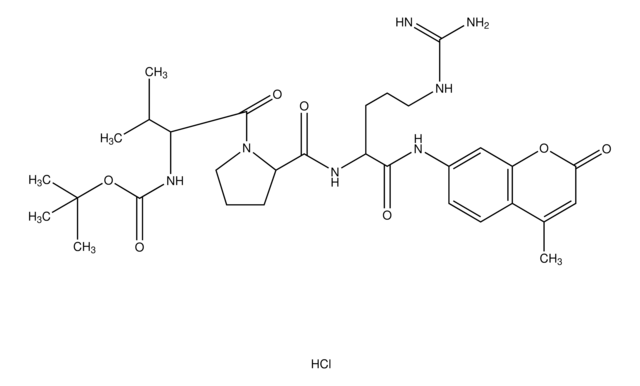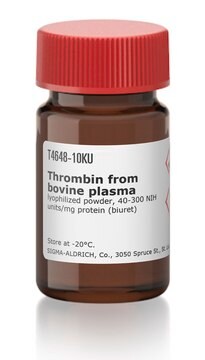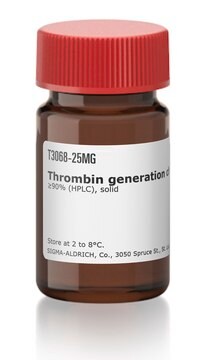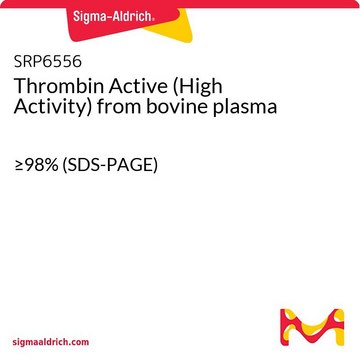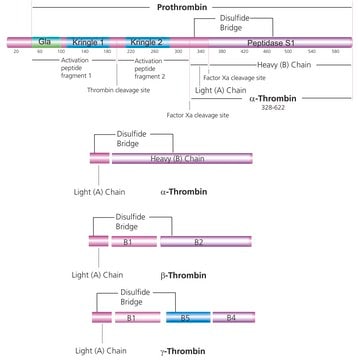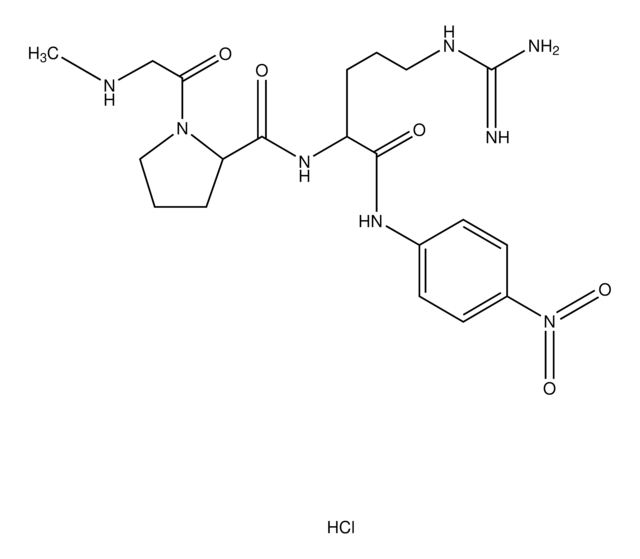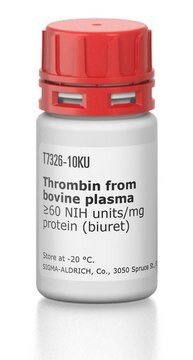SCP0252
Thrombin Substrate, fluorogenic
Se connecterpour consulter vos tarifs contractuels et ceux de votre entreprise/organisme
About This Item
Formule empirique (notation de Hill) :
C31H42N7O7
Poids moléculaire :
624.71
Code UNSPSC :
12352202
Nomenclature NACRES :
NA.32
Produits recommandés
Essai
≥95% (HPLC)
Forme
lyophilized
Composition
Peptide Content, ≥80%
Conditions de stockage
protect from light
Température de stockage
−20°C
Amino Acid Sequence
BOC-Val-Pro-Arg-AFC
Description générale
Thrombin has procoagulant and anticoagulant properties. It also has chemotactic and mitogenic effects. Thrombin triggers the growth of mammalian cells, fibroblasts and macrophage- like tumor cell lines. It regulates brain development. Thrombin plays an important role in hemostasis and thrombosis. It is associated with mast cell degranulation along with the release of histamine and enhances the production of IL-1 (interleukin-1) by activated macrophages. Thrombin stimulates vascular permeability and transendothelial cell migration by neutrophils.
Application
Thrombin is a serine protease involved in the coagulation cascade wherein it converts fibrinogen into fibrin. Thrombin may be detected (assayed) using peptides that contain the VPR sequence such as the fluorogenic substrates Boc-VPR-AFC, Boc-Val-Pro-Arg-7-AMC and the chromogenic substrate Boc-Val-Pro-Arg-pNA. These substrates may also be useful to detect other serine proteases.
Code de la classe de stockage
11 - Combustible Solids
Classe de danger pour l'eau (WGK)
WGK 3
Point d'éclair (°F)
Not applicable
Point d'éclair (°C)
Not applicable
Faites votre choix parmi les versions les plus récentes :
Certificats d'analyse (COA)
Lot/Batch Number
Vous ne trouvez pas la bonne version ?
Si vous avez besoin d'une version particulière, vous pouvez rechercher un certificat spécifique par le numéro de lot.
Déjà en possession de ce produit ?
Retrouvez la documentation relative aux produits que vous avez récemment achetés dans la Bibliothèque de documents.
Les clients ont également consulté
Multifunctional roles of thrombin
Narayanan S
Annals of Clinical and Laboratory Science, 29(4), 275-280 (1999)
Thrombin functions as an inflammatory mediator through activation of its receptor.
Cirino G, et al.
The Journal of Experimental Medicine, 183(3), 821-827 (1996)
Notre équipe de scientifiques dispose d'une expérience dans tous les secteurs de la recherche, notamment en sciences de la vie, science des matériaux, synthèse chimique, chromatographie, analyse et dans de nombreux autres domaines..
Contacter notre Service technique